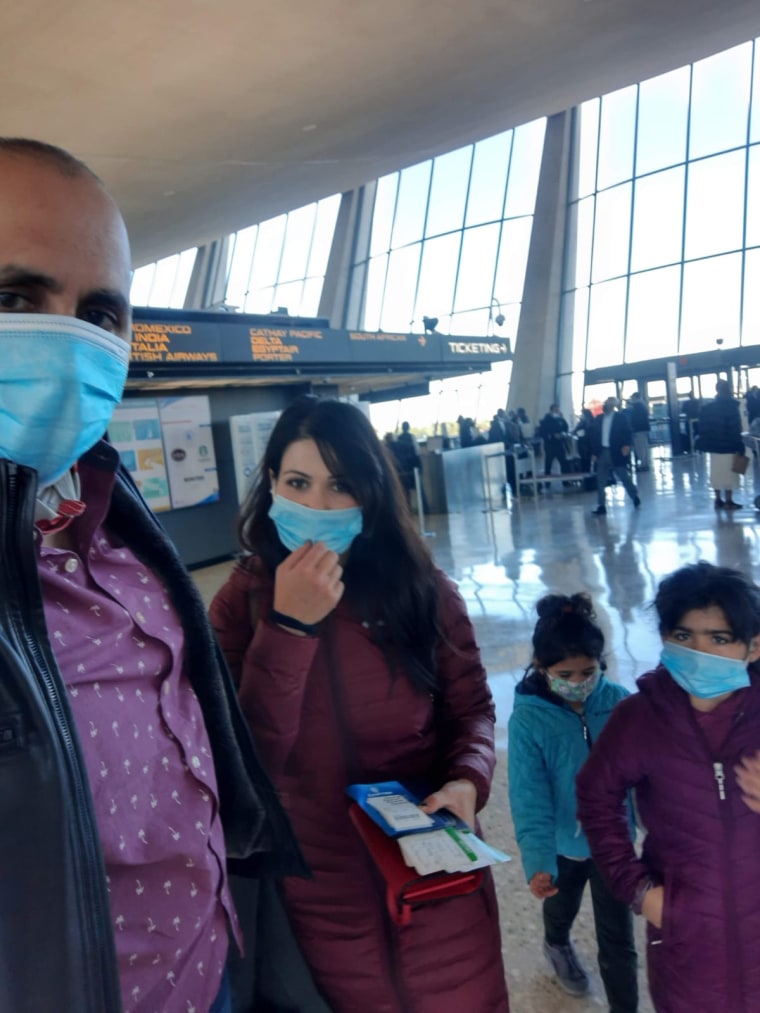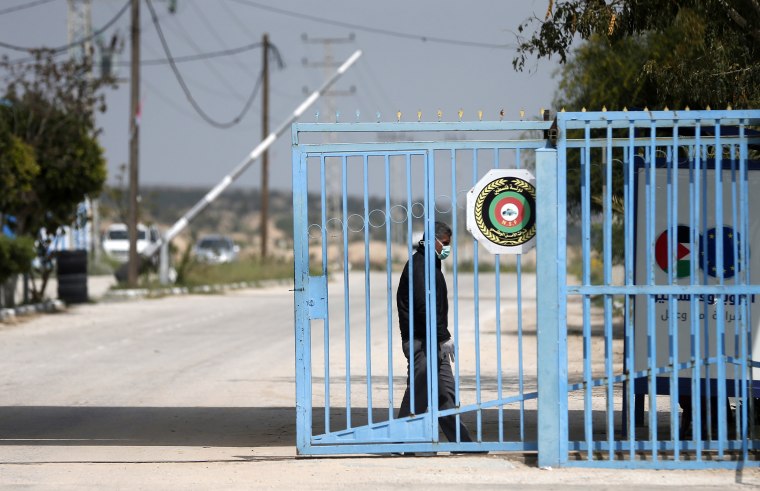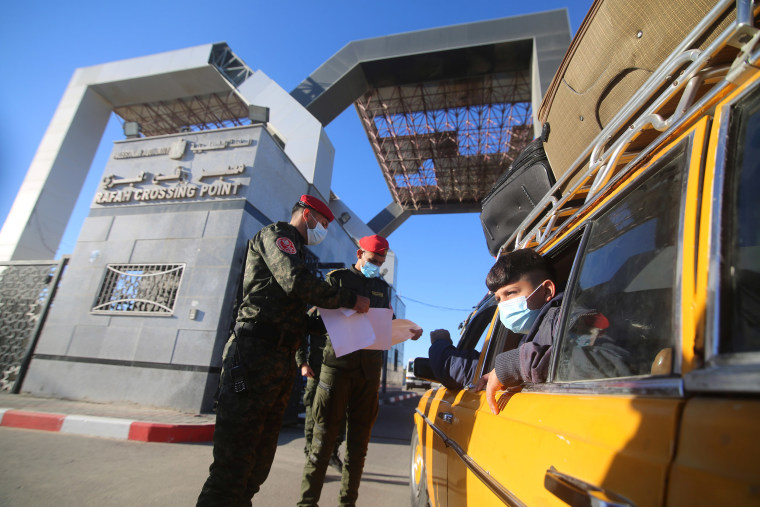Getting in and out of the Gaza Strip is never easy, but the coronavirus pandemic coupled with the ongoing blockade around the Palestinian enclave has led to one American family saying they are stranded there, unable to return to the United States.
In November, Hani Almadhoun and his family traveled from their Virginia home to Gaza, where he grew up, to say goodbye to his dying grandfather. Along with his wife, Roa, and their daughters, ages 6 and 4, he became stuck after Gaza's crossing points into Israel and Egypt were further restricted because of Covid-19.
Almadhoun, 39, told NBC News Thursday, he felt "abandoned" by the U.S. Embassy in Jerusalem, which he said had repeatedly dismissed his pleas for assistance. Ultimately, he said, he believed more would have been done to help repatriate him if he were white, rather than an Arab.

"You feel deeply humiliated and you feel treated, as a Palestinian American, like you don't really matter," said Almadhoun, who is a director of philanthropy at a United Nations agency supporting Palestinian refugees. "I told the embassy that their reputation is that they are there to help Brittany and Bob, they are not there to help Hani and Ahmed."
Department of State spokesman Ned Price told a briefing Monday he was unable to discuss the case because the family had not signed a privacy waiver. Almadhoun said he would be happy to do so, dismissing the response as the State Department "trying to cover their asses."
Crammed into a 145-mile-square patch of land, Gaza's almost 2 million people are no strangers to lockdowns. The enclave's land and sea borders are blockaded on three sides by Israel, and to the south by Egypt. Both cite security concerns relating to Hamas, the Islamist group that governs the strip and has been designated a terrorist organization by the United States and others.
The State Department explicitly advises against travel to Gaza "due to Covid-19, terrorism, civil unrest, and armed conflict" and warns its border crossings "may be closed" at short notice.
Egypt did that, closing its crossing at Rafah shortly after Almadhoun's grandfather died Nov. 19, only opening it briefly for a relatively small number of people this week. Israel's Erez crossing is only allowing passage on "humanitarian" grounds, and in any case the family would not be able to leave as the country has closed its borders and airport.
"As we've explained several times before, we cannot help you at the moment," the U.S. Embassy in Jerusalem told Almadhoun in an email seen by NBC News. "Please do not request assistance until the lockdown is over."
Download the NBC News app for breaking news and politics
There was a shred of hope Thursday when he received information that it might be possible to get through the Rafah crossing into Egypt on the final day of its four-day reopening. The family grabbed its bags and jumped in the back of a minivan — only to find when they got there that their names were not on the list.
"Things were hectic there," he said on his return. "It's not like we did not expect a bit of this. But it's our fate as Palestinians, I guess."
Born in the United Arab Emirates, Almadhoun moved to Gaza in the early 1990s and then to Utah on a scholarship to study in 2000. He became an American citizen in 2013.
He said he knew returning to his former home carried risks — particularly during a pandemic that's seen countless millions of people around the world unable to make similar journeys to see their loved ones.

"It's not like we came here and we don't know that Gaza's a mess — we do," Almadhoun said. "But, you know, Grandpa is somebody who's very significant here and you want to see him. We're glad we did that, but now we're like: ‘Hey, how about going back?’"
Compared to the economic hardship suffered by many in Gaza, Almadhoun and his family have plenty of food and an internet connection, which allows him to work remotely and Roa to dabble in the stock market.
He now hopes the more internationalist outlook of President Joe Biden will help him get back on U.S. soil.
"There's a different attitude," he said of the new administration. "I don't know about the behavior, it's too soon to know about the behavior, but there's certainly a change in attitude."

